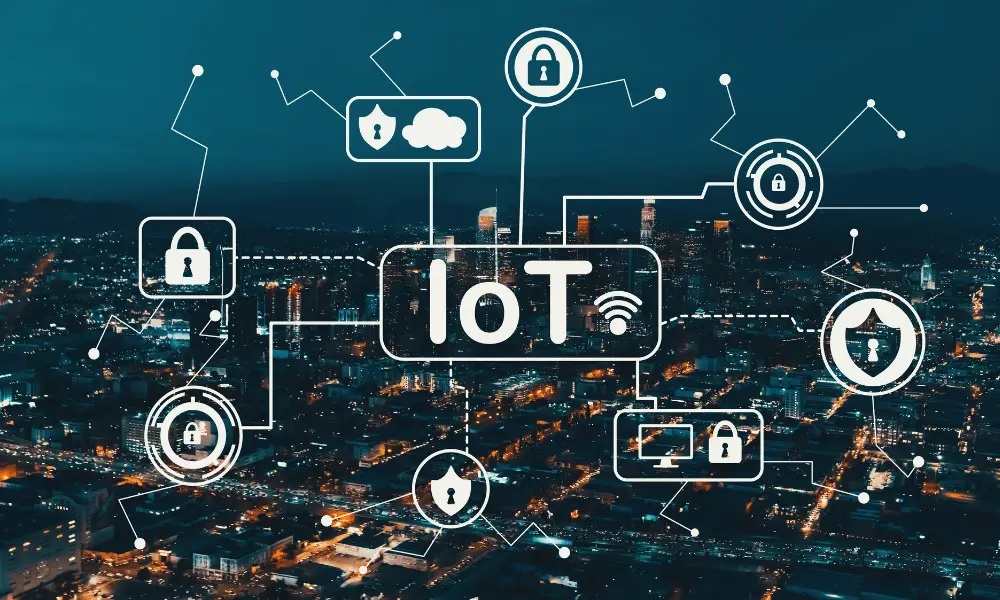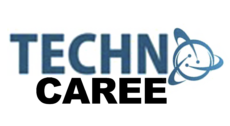The Next Frontier in the Workplace: IoT Wearables

The internet of things (IoT) has been making waves in the tech industry for years. It involves connecting devices and systems to the internet to collect and analyze data. One of the most exciting applications of IoT is the use of wearables in the workplace. IoT wearables have the potential to revolutionize the way we work, offering new insights into productivity, efficiency, and employee performance. In this blog post, we’ll explore the world of IoT wearables and how they’re shaping the future of work.
What are IoT wearables?
IoT wearables are electronic devices that connect to the internet and other devices to collect and analyze data. Employees typically wear them and can include things like smartwatches, fitness trackers, and even smart clothing. These devices have sensors that monitor the wearer’s behavior, such as their heart rate, sleep patterns, and activity levels.
IoT wearables in the workplace
The use of IoT wearables in the workplace is still relatively new, but it’s quickly gaining momentum. One of the biggest benefits of these wearables is the ability to track employee performance and productivity. By analyzing data collected from the wearables, employers can gain valuable insights into how their employees work and identify areas for improvement. This data can also be used to optimize workplace design and reduce workplace injuries.
Another application of IoT wearables in the workplace is in the realm of safety. Smart hardhats, for example, can detect and alert workers to potential hazards on construction sites. Similarly, intelligent safety glasses can provide real-time data on the wearer’s environment, including temperature, humidity, and noise levels.
IoT wearables in smart farming
IoT wearables are also proving invaluable in the world of agriculture, particularly in smart farming. IoT wearables can help farmers optimize irrigation, fertilization, and pest control by monitoring soil moisture, temperature, and other environmental factors. This data can also be used to monitor animal health and improve overall farm management.
IoT solutions in smart farming are becoming increasingly popular, with more and more farmers adopting these technologies to improve their operations. With the help of IoT wearables, farmers can collect and analyze data to optimize their operations, resulting in higher yields and reduced costs.
Privacy, security, and ethical concerns
While the potential benefits of IoT wearables are significant, there are also concerns about privacy, security, and ethics. IoT wearables collect a large amount of personal data, which could be misused if it falls into the wrong hands. Employers must be transparent about the data they collect and how it will be used to address these concerns. Additionally, IoT wearables are connected to the internet, making them vulnerable to cyberattacks. Employers must ensure that these devices are properly secured to prevent data breaches.
There are also ethical concerns about using IoT wearables in the workplace. For example, some employees may feel uncomfortable with being constantly monitored by their employer. To address these concerns, employers must establish clear policies around using IoT wearables and ensure that employees know their rights and how their data will be used.
Conclusion
IoT wearables are the next frontier in the workplace, offering employee performance and efficiency benefits. They also play a critical role in smart farming, allowing farmers to collect and analyze data to improve their operations. While there are concerns about privacy, security, and ethics with IoT wearables, these issues can be addressed through proper implementation and management. As technology advances, IoT wearables will become an increasingly integral part of our lives.
FAQs
Q: How are IoT wearables used in the workplace?
A: IoT wearables can track employee performance and productivity, optimize workplace design, and improve workplace safety. They can also be used in agriculture to monitor environmental factors and improve farm management.
Q: What are the privacy and security concerns with IoT wearables?
A: IoT wearables collect a large amount of personal data, which could be misused if it falls into the wrong hands. There are also concerns about employee privacy and the ethical use of this data. Employers must ensure that these devices are properly secured to prevent data breaches.
Q: How can employers address privacy and security concerns with IoT wearables?
A: Employers must be transparent about the data they collect and how it will be used. They must also establish clear policies around the use of IoT wearables and ensure that employees are aware of their rights and how their data will be used. Additionally, IoT wearables must be properly secured to prevent data breaches.
Q: How are IoT solutions used in smart farming?
A: IoT solutions are used in smart farming to monitor environmental factors, animal health, and farm management. This data can be used to optimize irrigation, fertilization, and pest control, resulting in higher yields and reduced costs.







